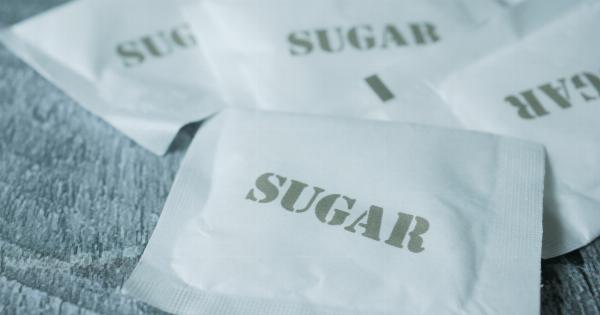The use of sweeteners has become increasingly popular in recent years, as more and more people are choosing to reduce their sugar consumption. Oligothermic sweeteners, in particular, have gained attention for their potential health benefits.
These sweeteners, which include stevia, erythritol, and xylitol, are known for their low calorie content and minimal impact on blood sugar levels.
The Basics of Oligothermic Sweeteners
Oligothermic sweeteners are a type of sugar substitute that are derived from natural sources. They are commonly used as a sugar alternative in various food and beverage products.
Unlike artificial sweeteners, oligothermic sweeteners are usually considered safe for consumption, as they have undergone rigorous testing and are approved by regulatory authorities.
The Impact of Oligothermic Sweeteners on Bowel Operations
While oligothermic sweeteners are generally well-tolerated by most individuals, there have been some concerns about their potential effects on bowel operations.
Bowel operations, such as bowel resection or colon surgery, can significantly affect the digestive system and its functions. The introduction of certain substances, including sweeteners, into the diet after such operations may need to be approached with caution.
Digestive Tolerance
One of the main concerns regarding the use of oligothermic sweeteners after bowel operations is their impact on digestive tolerance.
Some individuals may experience gastrointestinal discomfort, such as bloating, gas, or diarrhea, when consuming certain sweeteners. This can be particularly problematic for individuals recovering from bowel operations, as their digestive system may already be compromised.
Individual Sensitivities
Furthermore, individual sensitivities to oligothermic sweeteners can vary. While many people can consume these sweeteners without any negative effects, others may experience adverse reactions.
It is essential for individuals who have undergone bowel operations to communicate any sensitivities or allergies they may have to their healthcare providers.
Postoperative Nutrition
The nutritional needs of individuals recovering from bowel operations are often different from those without any surgical intervention. Adequate nutrition plays a crucial role in the healing process and optimizing recovery.
However, some oligothermic sweeteners may not provide the same nutritional value as natural sugars, potentially affecting postoperative nutrition. It is important for individuals to work with their healthcare providers or registered dietitians to ensure they are meeting their specific nutritional needs.
Managing Oligothermic Sweetener Consumption
While oligothermic sweeteners may have potential drawbacks for individuals recovering from bowel operations, they can still be enjoyed in moderation. Here are some tips for managing oligothermic sweetener consumption:.
- Monitor Digestive Tolerance: Pay attention to how your body responds to different sweeteners and adjust your intake accordingly.
- Read Product Labels: Check food labels carefully to identify which sweeteners are used in the products you consume.
- Consult with Healthcare Providers: Seek guidance from healthcare providers or registered dietitians regarding the appropriate use of sweeteners in your postoperative diet.
- Consider Natural Alternatives: Explore natural sweeteners, such as honey or maple syrup, which may have a lesser impact on digestive tolerance.
- Focus on Whole Foods: Emphasize a diet rich in whole, unprocessed foods to ensure optimal nutrition during the recovery period.
Conclusion
Oligothermic sweeteners can be a suitable alternative to sugar for many individuals.
However, for those recovering from bowel operations, it is important to exercise caution and be mindful of potential effects on digestive tolerance and postoperative nutrition. By working closely with healthcare providers and being attentive to individual sensitivities, individuals can navigate the use of oligothermic sweeteners in their diet effectively.




























